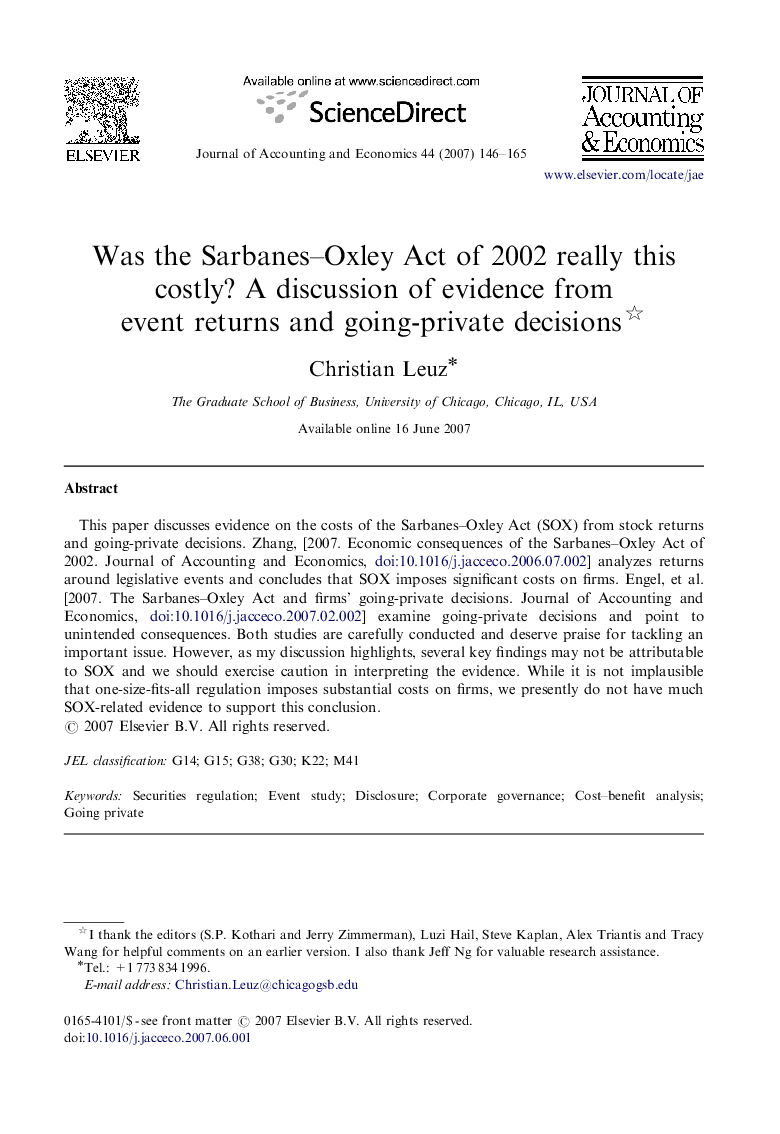| Article ID | Journal | Published Year | Pages | File Type |
|---|---|---|---|---|
| 5087044 | Journal of Accounting and Economics | 2007 | 20 Pages |
Abstract
This paper discusses evidence on the costs of the Sarbanes-Oxley Act (SOX) from stock returns and going-private decisions. Zhang, [2007. Economic consequences of the Sarbanes-Oxley Act of 2002. Journal of Accounting and Economics, doi:10.1016/j.jacceco.2006.07.002] analyzes returns around legislative events and concludes that SOX imposes significant costs on firms. Engel, et al. [2007. The Sarbanes-Oxley Act and firms' going-private decisions. Journal of Accounting and Economics, doi:10.1016/j.jacceco.2007.02.002] examine going-private decisions and point to unintended consequences. Both studies are carefully conducted and deserve praise for tackling an important issue. However, as my discussion highlights, several key findings may not be attributable to SOX and we should exercise caution in interpreting the evidence. While it is not implausible that one-size-fits-all regulation imposes substantial costs on firms, we presently do not have much SOX-related evidence to support this conclusion.
Keywords
Related Topics
Social Sciences and Humanities
Business, Management and Accounting
Accounting
Authors
Christian Leuz,
